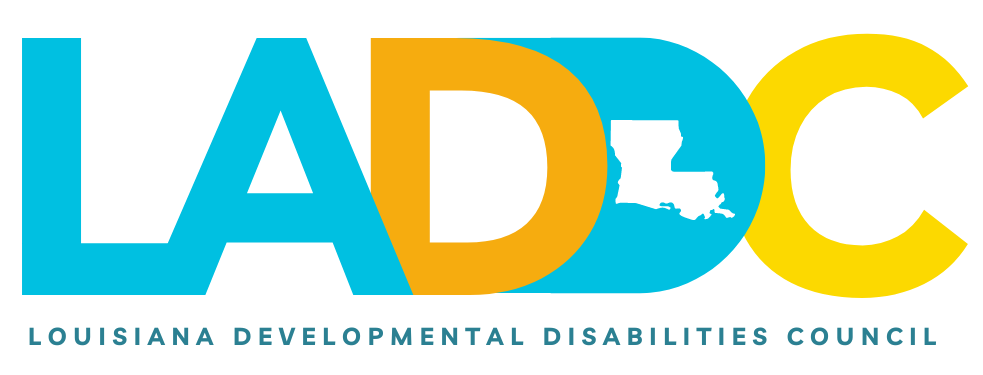Defining Advocacy
Advocacy has many definitions, but in general, advocacy can be defined as “taking action in support or opposition of a cause or issue.” Advocacy can be done through education, outreach, and grassroots organizing.
Individual vs. Systems Change Advocacy
LaCAN participates in systems change advocacy. Systems change advocacy differs from individual advocacy in that individual advocacy focuses on changing the situation of one person, while systems change advocacy focuses on changing laws and policies that affect large groups of people.
Why should you care about systems change advocacy? Well, being a part of systems change advocacy will benefit you as an individual as it changes the system that provides you with supports and services. Additionally, all the tools you learn as a member of LaCAN for systems change advocacy can also be used in your individual advocacy efforts.
Common Barriers to Advocacy
Your fears are likely those shared by most people just getting started in advocacy. Your Advocacy Leader and other experienced advocates are there to support you every step of the way. Below are just a few of the thoughts that prevent people from becoming involved in advocacy and the truth behind each one.
- It’s scary – legislators/policymakers are important people. I can’t do this!
– Advocacy Leaders are there to support you.
– Members advocate together.
– Policymakers are ordinary people. - I shouldn’t speak up. I may make someone mad.
– Your legislators want and need to hear how the system is or is not working for you. - No one will listen to me.
– Your policymakers are elected/chosen to represent you! It is their responsibility to listen. Most are eager to hear from their voters. - I don’t know enough to advocate.
– Knowing your personal story is enough.
– Advocacy members are provided information to help them understand and relate their situation to current or proposed policy. - I’m busy. I don’t have time to advocate.
– A little time can make a big difference. Can you write a short email? Make a quick call?
– Advocacy members are only as active as they choose to be. - My speaking up won’t make a difference. What’s the point?
– Home and community-based services in Louisiana came about largely through the advocacy efforts of people just like you — parents and self-advocates who wanted change!
– There have been drastic improvements in the types of services and options available to people with developmental disabilities in the last 30 years. The next generation is depending on you to keep speaking up!
Grassroots Advocacy
Grassroots advocacy is the organized advocacy efforts of a group of ordinary people with a shared mission and/or cause.
LaCAN is a grassroots advocacy network that utilizes orchestrated advocacy campaigns to achieve desired results. Every action alert you receive is the result of a decision that is made by a group of people. An orchestrated advocacy campaign creates a united:
- Message – everyone has the same basic message and/or request
- Time – everyone takes action within a certain time frame
- Target – everyone focuses on specific policymakers
Grassroots advocacy works because:
- Large numbers of people deliver the same message to the same target within an established time frame
- A unified message is stronger and has a good chance of seeing desired results
